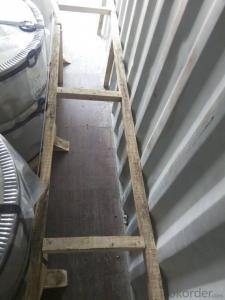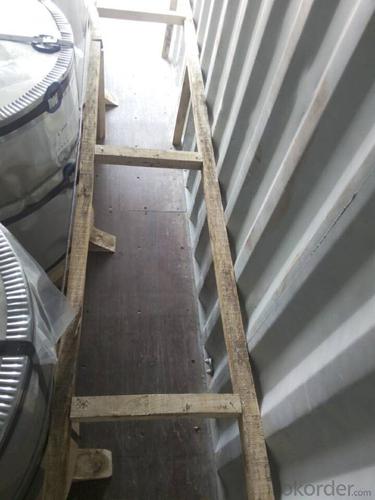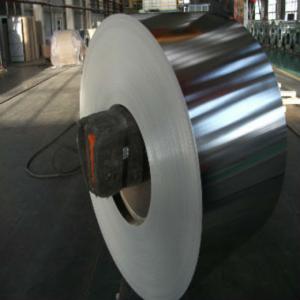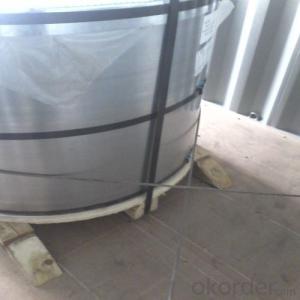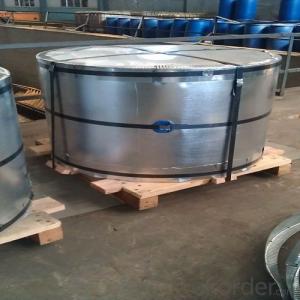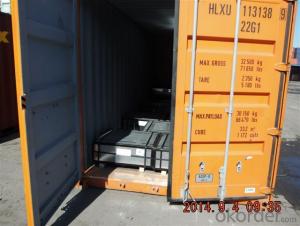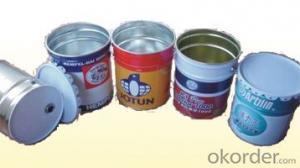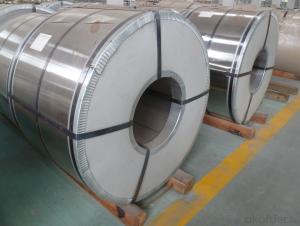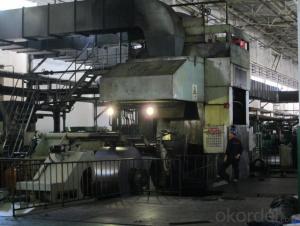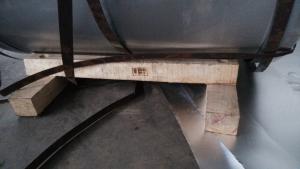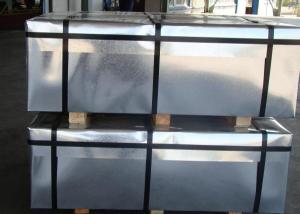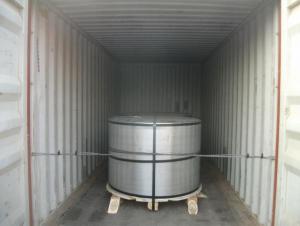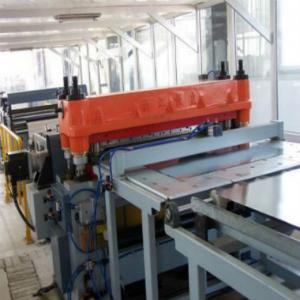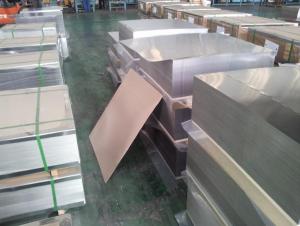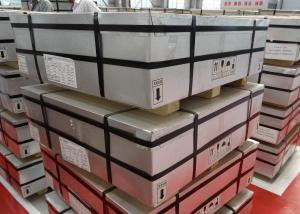Tinplate in MR Grade for Making Beverage Cans
- Loading Port:
- China main port
- Payment Terms:
- TT OR LC
- Min Order Qty:
- 25 m.t.
- Supply Capability:
- 30000 m.t./month
OKorder Service Pledge
OKorder Financial Service
You Might Also Like
1. Products: Tinplate
Tinplate and TFS are widely used for making all types of containers such as artistic cans, tea cans, painting cans, chemical package cans and metal printing etc. Its applications are not limited to containers; recently, they have also been used for making electrical machinery parts and many other products.
2. Specification:
Our goods enjoyed high quality both at home and abroad. We can supply tin free steel as follows:
Technical standard | JISG3303 and GB/T 2520-2008 |
Steel Type | MR / SPCC |
Thickness | From 0.15mm to 0.50mm (Tolerance +/- 0.01mm) |
Width | Normally 600-1050mm (Tolerance +3/-0 mm) |
Coating | 2.8/2.8g/m2 , 2.8/5.6g/m2 ,1.1/1.1 g/m2 |
Temper & Annealing | T1-T5, DR7-8, TS230-TH435, T49-T65(+/- 4) |
Surface Treatment | Bright & Fine Stone & Stone & Silver & Matt |
Payment terms | Letter of Credit (L/C), Telegraphic transfer (T/T) |
Price terms | CFR & CIF price term |
Delivery time | Within 60 days after received L/C or T/T down payment |
Packing | High quality shipping packing which contains thin plastic film, rust-proof paper, metal cover, metal angles and strap sand pallet. |
Minimum order Quantity(MOQ) | 25 metric tons (1X 20'' container) |
3. Pictures:
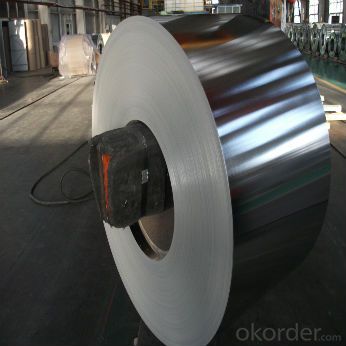
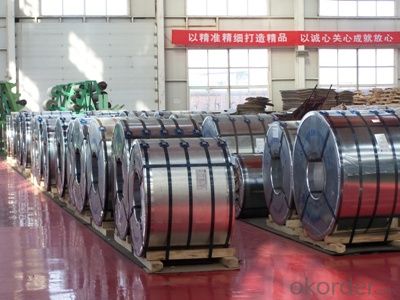
4. Features of the factory price/ tin free steel/tinplate/tfs/tmbp/etp/spte:
Beautiful Appearance
Excellent Paintability & Printability
Excellent Formability & Strength
Excellent Corrosion Resistance
Excellent Solderability & Weldability
5. FAQ:
We are one of the main producers in China for tinplate, tin free steel and also TMBP. At present, our productivity is more than 450000 MT/year.
For more information about our products or company, pls contact us freely.
Welcome your enquiries and orders.
- Q: What are the common printing techniques for tinplate?
- The common printing techniques for tinplate include lithography, screen printing, and digital printing.
- Q: Can tinplate be used for electrical enclosures?
- Yes, tinplate can be used for electrical enclosures. Tinplate is a type of steel sheet coated with a layer of tin, which provides corrosion resistance and durability. It can effectively protect electrical components from environmental factors, ensuring the safety and longevity of the enclosure.
- Q: What are the advantages of using tinplate for aerosol cans?
- Some advantages of using tinplate for aerosol cans include its durability, corrosion resistance, and ability to maintain product quality. Tinplate cans offer a longer shelf life for aerosol products as they prevent air and moisture from entering the can, ensuring the product remains fresh and effective. Additionally, tinplate cans are lightweight, making them convenient for transportation and storage. They are also recyclable, contributing to sustainability efforts.
- Q: Can tinplate be used for packaging frozen foods?
- Yes, tinplate can be used for packaging frozen foods. It has excellent durability and resistance to temperature fluctuations, making it suitable for preserving the quality and freshness of frozen food products. Additionally, tinplate offers a high level of protection against moisture, light, and oxygen, further ensuring the integrity of the frozen food during storage and transportation.
- Q: What are the recommended soldering techniques for tinplate?
- The recommended soldering techniques for tinplate include pre-tinning the surface, using a low-temperature solder, ensuring a clean and smooth joint, and avoiding excessive heat to prevent damage to the tin coating.
- Q: What are the advantages of using tinplate for promotional items?
- There are several advantages of using tinplate for promotional items. Firstly, tinplate is a durable material that can withstand wear and tear, making it ideal for long-lasting promotional products. Secondly, tinplate is highly customizable, allowing for various shapes, sizes, and designs to be created, enhancing the visual appeal of the promotional items. Additionally, tinplate can be easily printed on, enabling businesses to display their branding and messaging effectively. Lastly, tinplate is eco-friendly as it is recyclable, making it a sustainable choice for businesses concerned about their environmental impact.
- Q: How does tinplate maintain its shape during the manufacturing process?
- Tinplate maintains its shape during the manufacturing process due to its inherent strength and rigidity, which is achieved through a combination of factors. Firstly, the steel substrate used in tinplate is typically made from low-carbon steel, which provides a sturdy foundation. Additionally, the tin coating on the steel provides an added layer of protection and stability. The tin layer acts as a barrier against corrosion and helps to prevent deformation or warping of the tinplate. Moreover, the manufacturing process involves carefully controlling the temperature and pressure, ensuring that the tinplate retains its shape and structural integrity.
- Q: Can tinplate packaging be used for pharmaceutical products?
- Yes, tinplate packaging can be used for pharmaceutical products. Tinplate is a commonly used material in the pharmaceutical industry due to its durability, corrosion resistance, and ability to protect products from light, moisture, and external contaminants. Additionally, tinplate packaging provides an excellent barrier to oxygen and maintains the quality and integrity of pharmaceutical products.
- Q: How does tinplate perform in terms of light blocking properties?
- Tinplate is known to provide excellent light blocking properties due to its opaque and reflective nature, making it an effective choice for packaging materials to prevent light exposure and preserve the quality of light-sensitive products.
- Q: How is tinplate coated on both sides?
- Tinplate is coated on both sides through a process called electrolytic tinning. In this process, the tinplate is immersed in an electrolyte solution while an electric current is passed through it. This causes tin ions to be deposited on both sides of the tinplate, resulting in a thin layer of tin coating.
Send your message to us
Tinplate in MR Grade for Making Beverage Cans
- Loading Port:
- China main port
- Payment Terms:
- TT OR LC
- Min Order Qty:
- 25 m.t.
- Supply Capability:
- 30000 m.t./month
OKorder Service Pledge
OKorder Financial Service
Similar products
Hot products
Hot Searches
Related keywords
